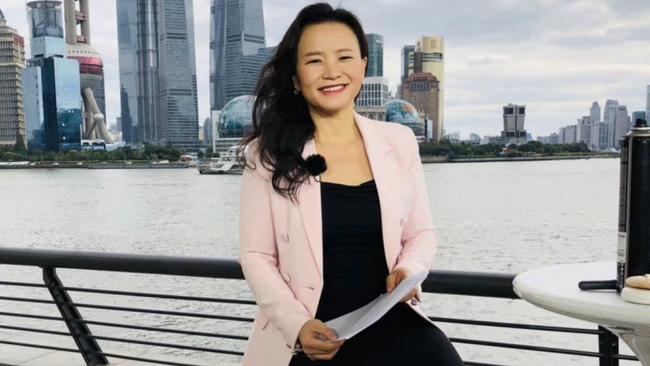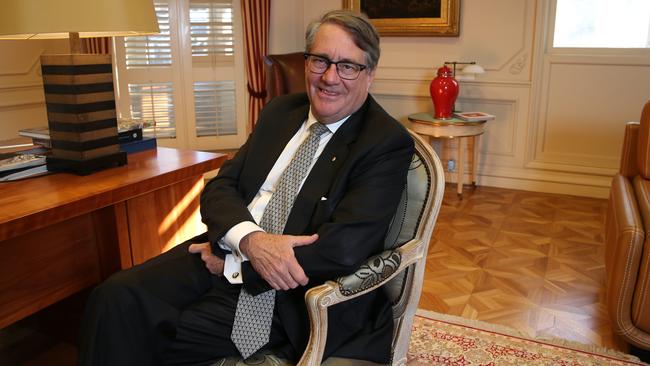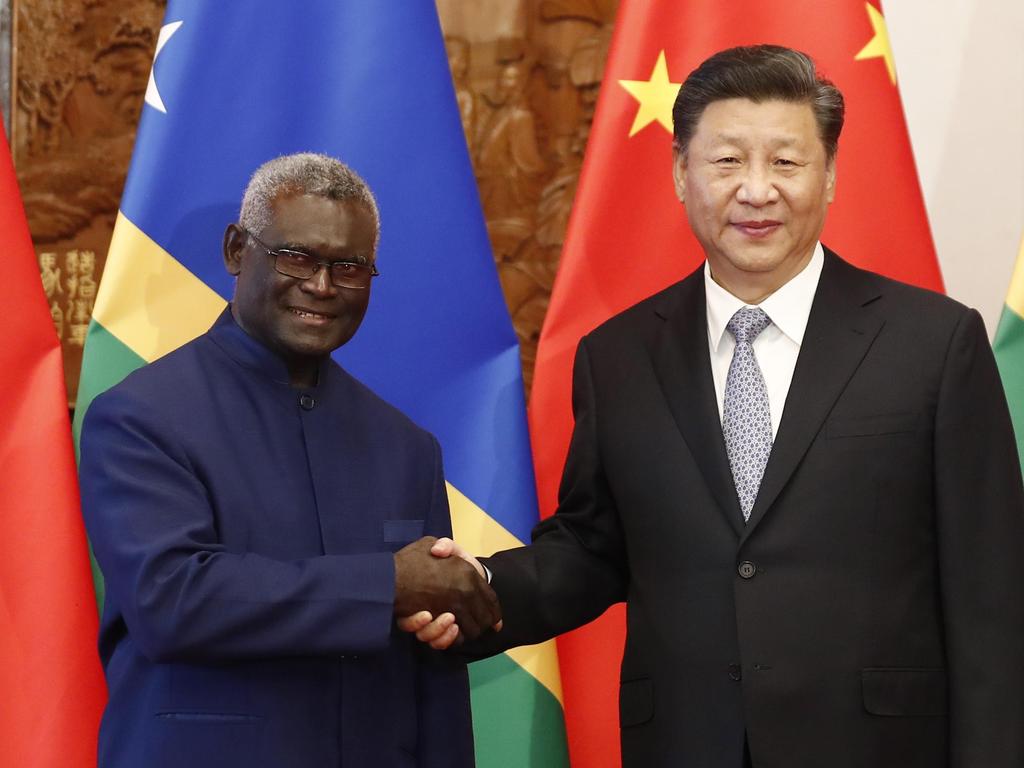Chinese trial of Australian journalist Cheng Lei ‘just wrong’, says Warwick Smith
An influential businessman has told Beijing the treatment of Cheng Lei is ‘not acceptable’ ahead of the Australian journalist’s trial on Thursday.

An influential businessman dubbed “Australia’s Mr China” has told Beijing the treatment of Australian journalist Cheng Lei is “not acceptable” ahead of the mother of two’s trial on Thursday.
After almost 600 days in often brutal conditions, the television host will be summoned from her prison cell to Beijing’s Number 2 Intermediate People’s Court for the one-day closed trial.
Cheng, 46, has not been allowed to speak to her children, aged 10 and 12, since she was arrested on August 13, 2020.
Warwick Smith, who for decades has been involved in some of Australia’s most successful business operations in China, said her ordeal had been hugely damaging to China’s reputation.
“Denying her the opportunity to be with family, that is in my view not a justice system you can admire. It’s a justice system that should be criticised, and criticised strongly, at every available opportunity,” he told The Australian. “It’s just wrong. And that’s the voice of business speaking very clearly.”
Foreign Minister Marise Payne and Labor foreign affairs spokeswoman Penny Wong have repeatedly raised concerns about the welfare of the Queensland University graduate, who was an anchor on China’s English-language state broadcaster CGTN.
Trade minister Dan Tehan praised Mr Smith’s comments in Washington on Wednesday (Thursday AEDT), where he was due to meet US Commerce Secretary Gina Raimondo and the top US trade negotiator Katherine Tai.
“I do echo his concerns, and the Australian government echoes his concerns and Warwick has shown real leadership in the business community in expressing those concerns,” he said.
“Our hope is we will see a fair trial and a trial that occurs very quickly,” he added at a press conference ahead of meetings on freeing up US investment for Australian critical minerals investment and how to combat Chinese economic coercion.
Mr Tehan also said Australian trade had expanded with China in areas not subject to Chinese sanctions, such as barley, lobster, beef and wine. “Australia is doing business with China at the moment and in many instances it has increased,” he said.
Australian journalist Peter Greste and academic Kylie Moore-Gilbert, who were similarly detained in Egypt and Iran respectively, have called on the government to ramp up pressure on China in a statement released overnight.
“As former prisoners in similar we are outraged at the conditions in which she is reportedly held, the lack of transparency about the evidence against her, and the excruciatingly slow pace of the Chinese judicial process,” they said.
“While we recognise that Australian government officials may have been working behind the scenes to help one of our own, our experience suggests that a more vocal public campaign can only improve her conditions, increase pressure for her release and ultimately help her cause,” they said.
Mr Smith, a minister in the Howard government, heads the international engagement and security committee of the Business Council of Australia, the blue-chip lobby group that includes many of the nation’s most China-engaged companies.

He expressed his concern about Cheng’s case directly in a meeting in February with China’s new ambassador in Australia, Xiao Qian.
“He understands,” Mr Smith told The Australian. “It’s not right, it’s not fair and we should be allowed to criticise it.”
His comments underline the breadth of concern about Cheng and fellow imprisoned Australian writer Yang Hengjun.
The arrests – which occurred during an unresolved period of huge tension in the bilateral relationship – have heightened the risks for Australian businesses operating in China.
Cheng’s arrest triggered the end of all Australian media in China because of security concerns, a situation that remains more than a year and a half on. It has also made it harder for the Australian government to recruit for China-based positions.
The Australian government’s international trade promotion agency, Austrade, is currently trying to recruit a Beijing-based head for its greater China operations, previously a plum job in its network. “This is something that concentrates the mind,” one person involved in that hiring process said.
Chinese authorities have accused Cheng – one of the most high-profile Australians in China – of “supplying or intending to supply state secrets or intelligence to an overseas organisation or individual”. They have not given any further details to the Australian government.
A friend of Cheng, Bloomberg journalist Haze Fan, was detained by state security police in Beijing in December 2020 and remains in prison.
Asked about Thursday’s trial, a spokesman for China’s foreign ministry said: “China’s judiciary handles cases in accordance with law and fully protects the lawful rights of the person involved.”
A story noting those remarks on one of China’s most popular news websites, Guancha, was flooded with vicious comments about Cheng, who was born in China and moved to Australia as a child. “Those who betray the motherland and compatriots are inexcusable and will be condemned and cast aside by all Chinese people,” was the most popular comment under the story.
Australian diplomats have been allowed to have monthly video meetings with Cheng during which she is led into a room wearing a hood and is strapped to a chair with a board across her lap. They are not allowed to discuss her case.
In a statement, Cheng’s family thanked the Australian government for its ongoing support.
“Her two children and elderly parents miss her immensely and sincerely hope to reunite with her as soon as possible,” the family said.
Australia’s diplomats in Beijing have asked for entry to Thursday’s trial, but expect to be denied, as happened with Dr Yang’s one-day hearing last year.
“It defies explanation,” Mr Smith said. “They can’t hide behind a security blanket and think that it doesn’t impact on the overall image that they give to the world.”
Charges over “state secrets” – an extremely broad offence in China – generally range from five to 10 years in prison, but life sentences are possible. China’s opaque court system has a 99 per cent conviction rate.







To join the conversation, please log in. Don't have an account? Register
Join the conversation, you are commenting as Logout